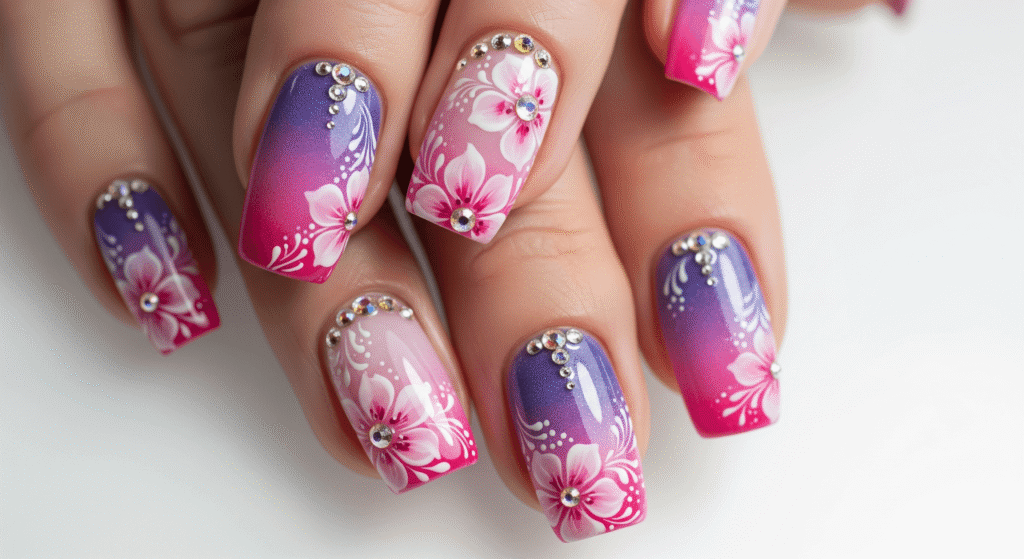Picture this: You’re standing in the skincare aisle, completely overwhelmed by rows of anti-aging creams promising to turn back time. Sound familiar? I’ve been there too, squinting at tiny ingredient labels like I’m deciphering ancient hieroglyphics.
Here’s the thing – not all anti-aging ingredients are created equal. Some are marketing fluff, while others are genuine skin superheroes backed by decades of research. After years of trial and error (and a few skincare disasters), I’ve learned that the secret to finding the best anti-aging cream isn’t about the fanciest packaging or the highest price tag. It’s all about knowing which ingredients actually work.
Whether you’re in your 30s and thinking about prevention or you’re 50+ and ready to tackle those laugh lines head-on, this guide will help you decode the ingredient maze. Let’s dive into the powerhouse components that should be on your radar – and trust me, your future self will thank you.
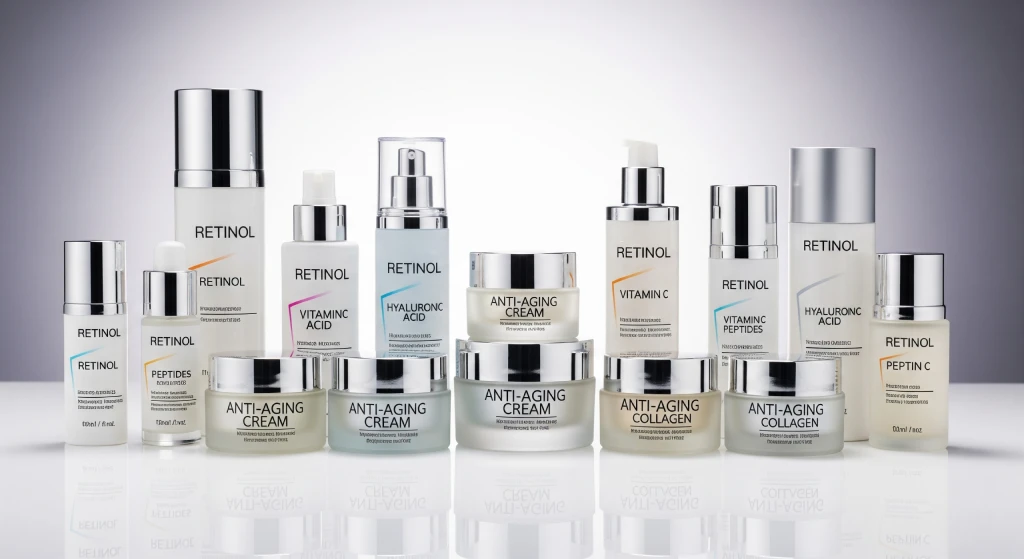
1. Retinol: The Gold Standard Anti-Aging Superhero
If retinol cream were a person, it would be that overachiever friend who excels at everything. Seriously, this vitamin A derivative is the closest thing we have to a fountain of youth in a bottle.
Why it works: Retinol speeds up cell turnover, essentially telling your skin to act younger. It boosts collagen production, fades dark spots, and smooths out fine lines. Think of it as a personal trainer for your face – it pushes your skin cells to work harder and look better.
What to expect: Here’s where I need to be real with you – retinol isn’t always gentle at first. You might experience some redness, dryness, or peeling (what we call “retinol uglies”). But stick with it! Start slow, maybe every other night, and gradually increase frequency.
Perfect for: Anyone serious about anti-aging, especially if you’re dealing with:
- Fine lines and wrinkles
- Uneven skin tone
- Large pores
- Dull complexion
Pro tip: Always use night anti-aging cream with retinol, never during the day. This ingredient makes your skin more photosensitive, so pair it with SPF during the day.
2. Hyaluronic Acid: The Ultimate Hydration Hero
Don’t let the word “acid” scare you – hyaluronic acid cream is actually one of the gentlest, most hydrating ingredients you can find. This moisture magnet can hold up to 1,000 times its weight in water. Yes, you read that right!
The science behind it: As we age, our natural hyaluronic acid production decreases. By age 40, we’ve lost about half of what we had in our teens. Adding it back through topical products helps restore that plump, dewy look we associate with youthful skin.
Benefits you’ll notice:
- Immediate plumping effect on fine lines
- Softer, more supple skin texture
- Better makeup application
- That coveted “glass skin” glow
Best for: Everyone! This ingredient plays well with others and works for all skin types, including sensitive skin. It’s particularly amazing for those with dry or dehydrated skin.
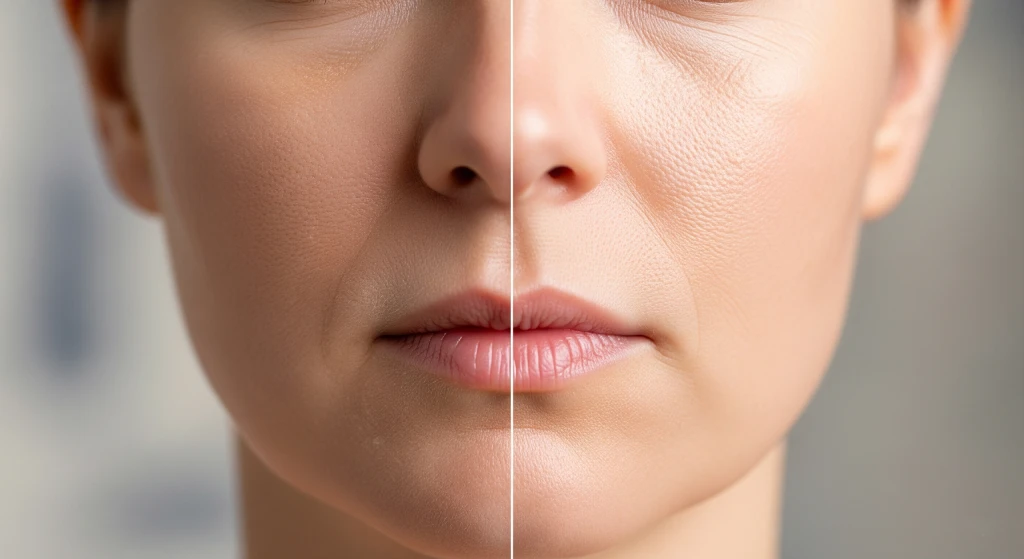
3. Peptides: The Collagen Boosters
Think of peptide cream as your skin’s personal cheerleader. These short chains of amino acids send signals to your skin cells, basically saying, “Hey, time to make more collagen!”
How they work: Peptides are like tiny messengers that communicate with your skin cells. When they detect signs of damage or aging, they trigger repair processes and encourage the production of new collagen and elastin.
Types to look for:
- Signal peptides: Stimulate collagen production
- Carrier peptides: Deliver minerals to boost enzyme activity
- Neurotransmitter peptides: Reduce muscle contractions (think Botox-lite)
Real talk: Peptides are gentler than retinol but still effective. They’re perfect if you have sensitive skin anti-aging needs or if you’re just starting your anti-aging journey.
4. Vitamin C: The Brightening Powerhouse
Vitamin C cream is like sunshine in a jar – it brightens, protects, and energizes your skin. This antioxidant is particularly amazing for tackling dark spots and giving you that lit-from-within glow.
Why it’s essential:
- Fades hyperpigmentation and dark spots
- Boosts collagen synthesis
- Provides antioxidant protection against environmental damage
- Creates a more even, radiant complexion
Forms to look for:
- L-ascorbic acid: Most potent but can be irritating
- Magnesium ascorbyl phosphate: Stable and gentle
- Sodium ascorbyl phosphate: Good for acne-prone skin
Application tip: Use day anti-aging cream with vitamin C for maximum protection, but remember that some forms can make you photosensitive. Always follow up with SPF!
5. Niacinamide (Vitamin B3): The Multi-Tasking Marvel
If you could only choose one ingredient for overall skin improvement, niacinamide might just be it. This form of vitamin B3 is like a Swiss Army knife for your skin – it does a little bit of everything, and it does it well.
What makes it special:
- Regulates oil production (great for combination skin)
- Minimizes pore appearance
- Reduces inflammation and redness
- Strengthens the skin barrier
- Fades dark spots
The best part: Niacinamide is incredibly gentle and suitable for all skin types. It’s also budget-friendly, making affordable anti-aging cream options with this ingredient a smart choice.
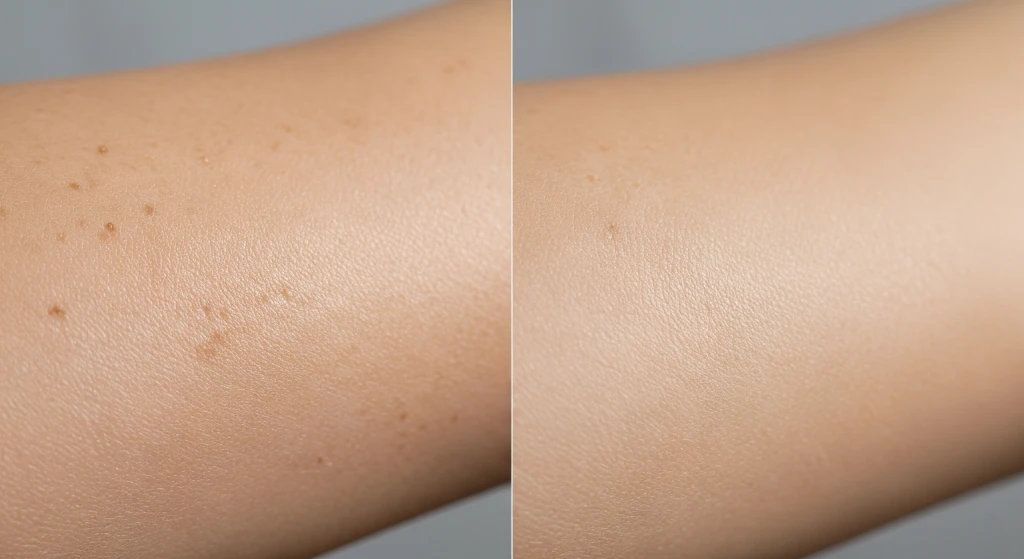
6. Alpha Hydroxy Acids (AHAs): The Gentle Exfoliators
AHAs like glycolic acid and lactic acid are your ticket to smoother, brighter skin. These anti-aging moisturizer ingredients work by gently dissolving the bonds between dead skin cells, revealing fresher skin underneath.
Popular AHAs and their benefits:
| AHA Type | Source | Best For | Strength |
|---|---|---|---|
| Glycolic Acid | Sugar cane | Fine lines, texture | Strongest |
| Lactic Acid | Fermented milk | Dry, sensitive skin | Gentle |
| Mandelic Acid | Almonds | Sensitive, dark skin | Very gentle |
| Tartaric Acid | Grapes | Antioxidant benefits | Mild |
Usage tips:
- Start with lower concentrations (5-10%)
- Use 2-3 times per week initially
- Always apply sunscreen the next day
- Best used in evening routines
7. Ceramides: The Barrier Builders
Your skin barrier is like a protective wall, and ceramides are the mortar that holds it together. These lipid molecules make up about 50% of your skin’s composition, but they decrease with age and environmental damage.
Why you need them:
- Strengthen the skin barrier
- Lock in moisture
- Reduce sensitivity and irritation
- Create smoother, softer skin texture
Perfect for:
- Dry or mature skin
- Those with compromised skin barriers
- Anyone using active ingredients like retinol
Look for products that combine: Ceramides work beautifully with hyaluronic acid and niacinamide for maximum barrier repair benefits.
8. Antioxidants: The Environmental Protection Squad
Environmental damage is one of the biggest contributors to premature aging. Antioxidants in your anti wrinkle cream help neutralize free radicals and protect against pollution, UV damage, and other external stressors.
Powerhouse antioxidants to seek:
- Vitamin E: Pairs beautifully with vitamin C
- Green tea extract: Anti-inflammatory and soothing
- Resveratrol: Found in red wine, fights aging
- Coenzyme Q10: Energizes skin cells
- Ferulic acid: Stabilizes other antioxidants
The synergy effect: Antioxidants work better together. Look for products that combine multiple antioxidants for maximum protection.
9. Growth Factors: The Cellular Regenerators
Growth factors are proteins that stimulate cellular growth and repair. While they sound very scientific (and expensive), they’re becoming more common in dermatologist anti-aging cream formulations.
How they help:
- Speed up skin repair processes
- Stimulate collagen and elastin production
- Improve skin texture and firmness
- Reduce appearance of scars and wrinkles
Sources:
- Plant-derived (from stem cells)
- Synthetic versions
- Marine-derived options
Investment piece: Growth factor products tend to be pricier, but many users see dramatic results, especially for mature skin concerns.

10. Bakuchiol: The Natural Retinol Alternative
If retinol and your skin don’t get along, meet bakuchiol – the gentle, plant-based alternative that delivers similar benefits without the irritation. This ingredient from the babchi plant is perfect for natural anti-aging cream enthusiasts.
Why it’s gaining popularity:
- Provides retinol-like benefits without irritation
- Safe for pregnancy and breastfeeding
- Works well with other active ingredients
- Suitable for daytime use
Benefits you’ll see:
- Improved skin firmness and elasticity
- Reduced fine lines
- More even skin tone
- Enhanced collagen production
Age-Specific Ingredient Recommendations
Anti-Aging Cream for 30s: Prevention Mode
Focus ingredients:
- Vitamin C (protection and prevention)
- Hyaluronic acid (maintain hydration)
- Mild retinol (start the anti-aging process)
- Niacinamide (overall skin health)
Your thirties are all about prevention. You’re not necessarily fighting major signs of aging yet, but you’re setting the foundation for healthy skin in the decades to come.
Anti-Aging Cream for 40s: Maintenance and Repair
Power ingredients:
- Higher concentration retinol
- Peptides for collagen support
- AHAs for texture improvement
- Antioxidant blends for protection
This is when you might start noticing more pronounced changes. Your skin care routine should focus on maintaining what you have while addressing new concerns.
Anti-Aging Cream for 50s: Intensive Repair
Heavy-hitting ingredients:
- Prescription-strength retinoids (consult your dermatologist)
- Growth factors for cellular repair
- Multiple peptide complexes
- Rich moisturizing components like ceramides
Hormonal changes during menopause can dramatically affect your skin. This is the time to invest in more potent formulations.
Ingredient Combinations That Work (And Ones to Avoid)
Power Couples 💕
- Vitamin C + Vitamin E: Enhanced antioxidant protection
- Retinol + Hyaluronic Acid: Anti-aging benefits with hydration
- Niacinamide + Ceramides: Barrier repair dream team
- Peptides + Growth Factors: Collagen production boost
Avoid These Combinations ❌
- Retinol + AHAs: Can cause excessive irritation
- Vitamin C + Retinol: May reduce effectiveness (use at different times)
- Benzoyl Peroxide + Retinol: Can cause severe dryness
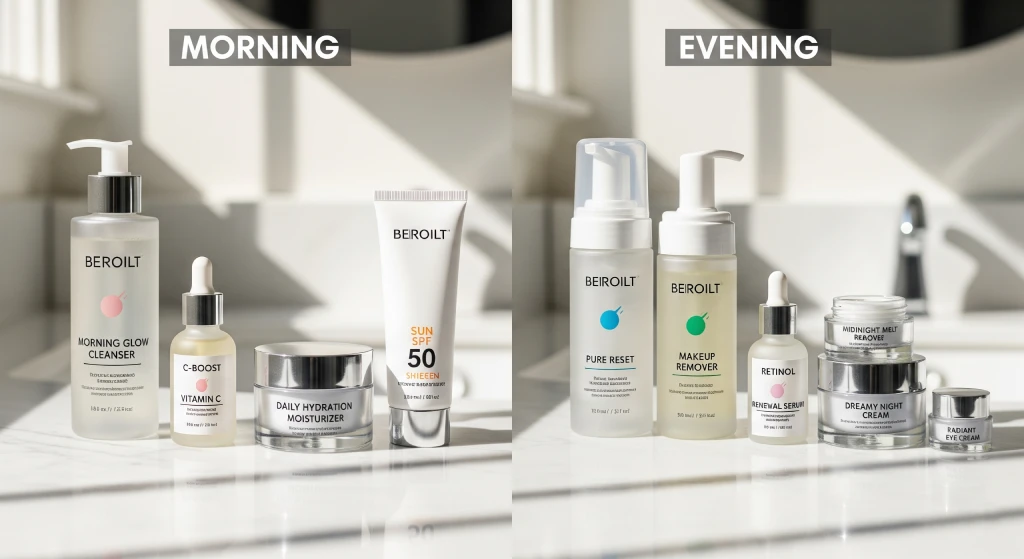
FAQ: Your Anti-Aging Ingredient Questions Answered
At what age should anti-aging cream be used? The earlier, the better! I always tell people that prevention is easier than correction. You can start incorporating gentle anti-aging ingredients like vitamin C and hyaluronic acid in your mid-20s, with more potent ingredients like retinol in your late 20s to early 30s.
Can anti-aging creams eliminate wrinkles completely? Let’s be honest here – topical creams can significantly improve the appearance of fine lines and prevent new wrinkles from forming, but they can’t completely eliminate deep, established wrinkles. For those, you might need professional treatments like injectables or laser procedures.
What key ingredients should be in an effective anti-aging cream? The holy trinity for me is retinol (or a gentle alternative), hyaluronic acid, and vitamin C. Add peptides and antioxidants, and you’ve got a powerhouse formula.
Are anti-aging creams suitable for sensitive skin? Absolutely! Look for sensitive skin anti-aging products with gentle ingredients like bakuchiol instead of retinol, lower concentrations of acids, and soothing ingredients like niacinamide and ceramides.
Can men use anti-aging cream or is it different for genders? Skin is skin! While anti-aging cream for men marketing exists, the ingredients that work are the same regardless of gender. Men might prefer lighter textures and fragrance-free formulations, but the active ingredients remain effective across the board.
Is retinol necessary in all anti-aging creams? While retinol is the gold standard, it’s not absolutely necessary. Alternatives like bakuchiol, peptides, and vitamin C can provide anti-aging benefits. The best ingredient is the one you’ll actually use consistently.
How long does it take to see results from anti-aging creams? Patience is key! You might see hydration improvements within days, but real anti-aging changes take 6-12 weeks of consistent use. Some ingredients, like retinol, can take up to 6 months to show their full potential.
Should I use anti-aging cream during the day or night? It depends on the ingredients! Vitamin C works great in day anti-aging cream formulations, while retinol should be reserved for night anti-aging cream use. Hydrating ingredients like hyaluronic acid work beautifully both day and night.
Can anti-aging creams lighten dark spots or pigmentation? Yes! Ingredients like vitamin C, niacinamide, AHAs, and retinol are particularly effective at fading hyperpigmentation. Just remember that consistency is key, and always use SPF during the day.
Do affordable anti-aging creams work as well as expensive ones? Here’s a secret the beauty industry doesn’t want you to know – affordable anti-aging cream options can be just as effective as luxury versions. The key is looking at the ingredient list, not the price tag. Many drugstore brands offer excellent formulations with proven ingredients.
Product Spotlight: Top Recommendations by Ingredient
Best Overall Multi-Tasking Creams
- Olay Regenerist Micro-Sculpting: Peptides, niacinamide, hyaluronic acid
- L’Oréal Revitalift Triple Power: Pro-retinol, vitamin C, hyaluronic acid
- CeraVe Skin Renewing Night Cream: Ceramides, peptides, gentle formula
Best Retinol Options
- Neutrogena Rapid Wrinkle Repair: Retinol SA for faster results
- RoC Retinol Correxion Deep Wrinkle: Strong retinol complex
- La Roche-Posay Redermic R: Pure retinol with vitamin B3
Best for Sensitive Skin
- Clinique Smart Custom-Repair: Gentle, fragrance-free
- Kiehl’s Super Multi-Corrective: Natural ingredients, hydrating
- Vichy LiftActiv Supreme: Thermal water, gentle actives
The Bottom Line: Building Your Perfect Anti-Aging Arsenal
Here’s what I’ve learned after years of testing, researching, and occasionally making skincare mistakes: the best anti-aging cream is the one that contains proven ingredients, fits your budget, and, most importantly, one that you’ll use consistently.
Don’t feel like you need to use every ingredient I’ve mentioned. Start with one or two key ingredients and gradually build your routine. Listen to your skin, be patient with results, and remember that consistency beats intensity every time.
Whether you’re looking for organic anti-aging cream options, anti-aging cream for dry skin, or something specifically formulated for your skin type, focus on the ingredients that matter. Your skin – and your confidence – will thank you for it.
Ready to upgrade your skincare routine? Start by identifying your main skin concerns, then look for products containing the ingredients I’ve highlighted. Remember, great skin is a marathon, not a sprint. Begin with gentle formulations, introduce new ingredients gradually, and always, always wear sunscreen during the day.
Your journey to healthier, more youthful-looking skin starts with understanding what goes into that little jar. Now that you’re armed with this knowledge, you can shop smarter, avoid marketing gimmicks, and invest in products that actually work.
What ingredient are you most excited to try? Your future self is already thanking you for taking this step toward better skin health!


